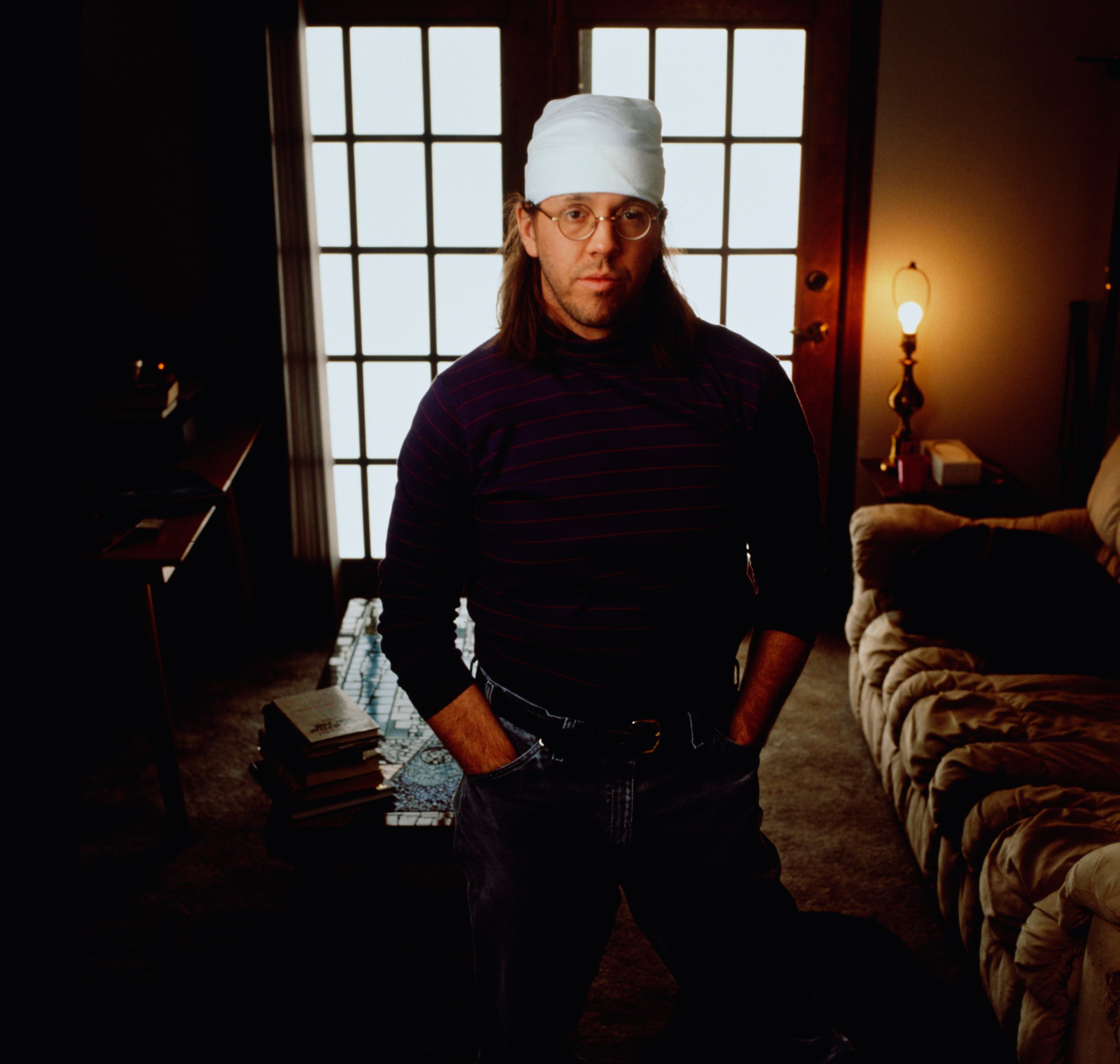
In the new film The End of the Tour, out Friday, Jason Segel plays the late author David Foster Wallace, in a look at Wallace’s life shortly after the release of his 1996 tome Infinite Jest. The movie takes place during the promotional tour for the book that firmly established Wallace as what TIME would soon call “Fiction’s New Fab Four.” (The other three were Jonathan Franzen, Rick Moody and Donald Antrim.)
“Wallace made a connection with Infinite Jest, his 1,000-page opus about an early 21st century North America splintered by drugs, fanatics and a business ethic so venal that even the months of the year have product names,” TIME’s R.Z. Sheppard commented.
And, Sheppard had concluded in the previous year’s review of Infinite Jest, there was good reason for the attention Wallace was getting. The book was a “marathon send-up on humanism at the end of its tether” and full of “generous intelligence and authentic passion.” Looking back at it now, that send-up is particularly mordant. After all, the book takes place in 2014.
In a sidebar to the review, Wallace told TIME that the choice to set Jest in the then-future was crucial to the book’s reason for being. “In a time of unprecedented comfort and pleasure and ease, there was a real sort of sadness about the country,” Wallace is quoted saying. “I wanted to do something about it, about America and what our children might think of us. That’s one reason for setting the book 18 years ahead.”
Now, for better or worse, we know.
Read the original review of Infinite Jest, here in the TIME Vault: Mad Maximalism
Calvin Coolidge at Georgetown University
In 1924: “The market for trained intelligence will never be overstocked.”
Franklin Delano Roosevelt at Oglethorpe University
In 1932: “The country demands bold persistent experimentation. It is common sense to take a method and try it. If it fails, admit it and try another. But above all, try something. The millions who are in want will not stand by silently forever while the things to satisfy their needs are within easy reach.”
Ralph McGill, editor of the Atlanta Constitution, at the University of Miami
In 1949: “It has sometimes been my idea that instead of a speaker offering sage advice, it would be a far better idea to place before a graduating audience a fine symphony … or a magnificent ballet, and when this had been completed, to say; ‘Ladies and gentlemen, life can be very lovely or very sad. It probably will be a mixture of both . . . Goodbye, and God go with you . . .”
Kirsten Mishkin, the first Radcliffe woman to deliver the traditional Latin commencement address at Harvard
In 1970 (and this one’s in Latin, so it needs more room):
“Together, let us establish a new society, the foundations of which will be … not fear, but good will; not war between the sexes, but loyal brotherhood and sisterly love,” she concluded, also in Latin.
Beverly Sills at Barnard College in 1981
In 1981: “If you wonder when you’ll get time to rest, well, you can sleep in your old age if you live that long. You may be disappointed if you fail, but you are doomed if you don’t try.”
Coretta Scott King at Pomona College
In 1984: “When we make politics a crusade, politicians will begin to understand that they must serve all of the people and not just a select few.”
Ann H. Zwinger at Carleton College
In 1984: “I highly recommend the pursuit of happiness from east to west, bending and stooping, pausing, enjoying, not going anywhere in particular except down a beach or around a pond, always knowing that there is something wonderful just ahead.”
Barbara Walters at Hofstra University
In 1986: “The hardest thing you will ever have to do is to trust your own gut and find what seems to work for you.”
Tracy Kidder at Sarah Lawrence College
In 1986: “If you do feel a little worried, don’t worry about being worried. You’re heading out on an adventure, and you can always change your mind along the way and try something else.”
Jodie Foster at the University of Pennsylvania
In 2006: “Your Penn education has given you a two-by-four. You may build a building or hit someone over the head.”
More Must-Reads From TIME
- The 100 Most Influential People of 2024
- Coco Gauff Is Playing for Herself Now
- Scenes From Pro-Palestinian Encampments Across U.S. Universities
- 6 Compliments That Land Every Time
- If You're Dating Right Now , You're Brave: Column
- The AI That Could Heal a Divided Internet
- Fallout Is a Brilliant Model for the Future of Video Game Adaptations
- Want Weekly Recs on What to Watch, Read, and More? Sign Up for Worth Your Time
Write to Lily Rothman at lily.rothman@time.com